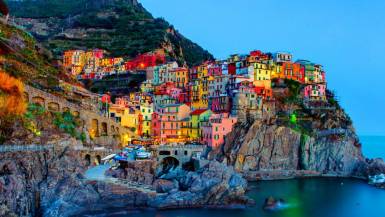Reasons to do your International Education in Italy
 Posted date: 12 Jan 2021
Posted date: 12 Jan 2021
Have you ever thought of studying in a country where you can have almost anything, like skiing, beaches, and even the most beautiful historical sites and artistic creations in Europe, just around the corner?
Have you ever felt that you would like to go further with your language skills and not just speak to others in English? Only going to a location where you need to learn to speak the local language? Well then, in Italy you should look for a study alternative!
Not only because of its strong multicultural environment, Italy is a popular foreign study spot, but the country also has many top public and private universities. Italy is one of Europe's most accessible countries where you can study abroad, and it also applies to tuition and living expenses.
With 87 airports, nearly every major city is also perfectly linked to European and non-European countries. You can easily travel by train; with 77 (main-) railway stations, all the larger Italian cities are connected. For many students who do not like travelling by car or by plane, that makes life easier.
It would really be a shame not to take advantage of the luxury of living close to multiple UNESCO World Heritage Sites when you are enjoying international student status in Italy. Yes, in this, Italy beats any country, counting 51 heritage sites that talk about Italy's cultural and historical history. Students who have chosen Italy to study in fields such as sculpture, architecture or fashion, in particular, will never regret their decision. You will certainly appreciate these emblematic features of Italian culture, even though you have come to Italy to learn something else.
Besides that, Italy is full of stunning and charming attractions that will make you dream with your eyes open and you will undoubtedly fall in love with the place. Don't forget to review the student visa requirements just before you fall in love with Italy. EU students have free passage to this wonderland, and if you're from outside the EU/EEA, you'll need to apply for a visa first, with a little support from your country's Italian embassy or consulate.
Posted By

GSP Admin




